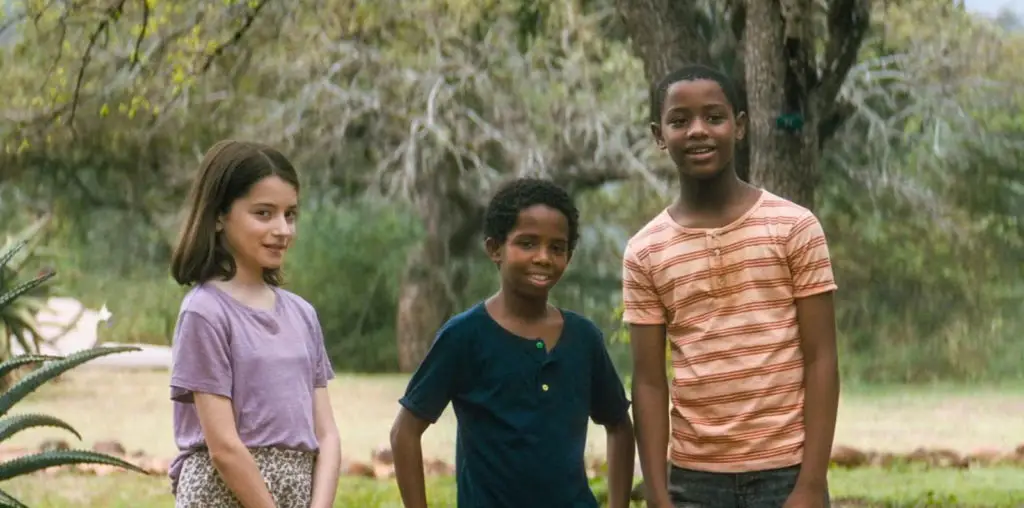
Harry (Matías del Pozo) is not the real name of the young protagonist of “Kamchatka,” but that’s his choice when he is told he must choose an alias. It’s only natural for a child of fugitives to imagine himself an escape artist like Harry Houdini.
Harry’s parents aren’t criminals. His doctor mother (Cecilia Roth) and lawyer father (Ricardo Darin) are like millions of politically active, left-of-center urban professionals all over the world. It’s just their bad luck that they happen to be in Argentina during the 1970s, when a military coup installed a deeply bloodthirsty regime that could have taught Saddam Hussein a thing or two about torture and mass murder. Fortunately, they are also loving, attentive parents to Harry and his little brother Tiny (Milton De La Canal) and they are able to create an almost normal life for their children, even in the midst of the aptly named “dirty war.”
Still, it’s not easy for the kids. They are ripped from home, school and friends and forced to hide and conceal their true identities, even from a likeable teenage houseguest (Tomás Fonzi) who becomes Harry’s new best friend. Of course, it’s even harder for the parents who are only too aware that if they are caught, they will be tortured in unimaginable ways and eventually killed. Taking up residence in an isolated, abandoned house, they manage to work and play much in the manner of any normal family, only better. They sing, dance, play board games — including the Spanish language version of “Risk” (the film takes it’s title from the Russian peninsula featured in the game). The boys — and the audience along with them — can only sense the tension the parents are feeling.
I’m something of a fan of films that view history through the eyes of children: John Boorman’s great “Hope and Glory,” “A World Apart” and last year’s foreign language Oscar winner, “Nowhere in Africa.” Those movies, however, center on families that are at least partly dysfunctional. The nameless family in “Kamchatka” is, if anything, heroically functional. In a less successful effort, the intelligent, humorous, sexy parents could have seemed obnoxiously idealized — the Cosby’s in Argentina. Yet, as ably played by Cecilia Roth and Ricardo Darin, they aren’t perfect people, just capable and determined not to let the forces of repression rob them of their humanity. Similarly, Matías del Pozo as Harry is asked to carry the movie, and he does so in a believable, unsentimental performance that anchors the story.
Written by Marcelo Figueras and ably directed by Marcelo Piñeyro, “Kamchatka” doesn’t break any new ground, but it is a touching paean to true family values. It’s also a reminder that the most pervasive and chilling form of terrorism is the one imposed by one’s own state.
A final thought that will not please fans of Fox News: “Kamchatka” is Argentina’s official entry for this year’s Best Foreign Language Academy Award. It probably helps that it does not point any fingers at the U.S. — but that doesn’t mean I can’t. The real-life horrors that the real-life equivalents of the family in “Kamchatka” dealt with throughout Latin America during the last decades of the Cold War were aided and abetted by certain still very powerful people in Washington D.C. The fact that today they are haunting our corridors of power, and not standing trial at the International Criminal Court, is a crime in itself.
